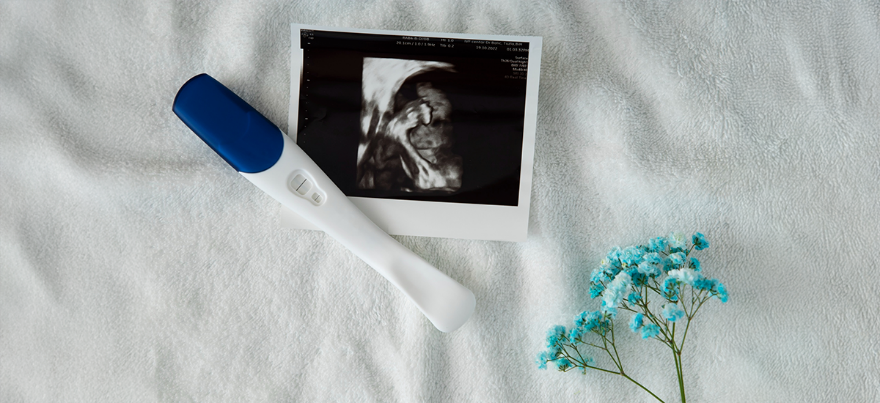Categories
Egg Freezing Explained: Process, Benefits, and Considerations
Aug 06, 2025
To be honest, the path of biology is not always in sync with the evolving nature of our lives. Whether you are advancing in your career, looking for continued education, or still finding the right partner, your reproductive timeline is no waiting for the “right time”.
What options exist for women wanting to obtain greater flexibility in planning their future?
One approach that has begun to become normalized is egg freezing. Egg freezing is an amazing progress in reproductive medicine that gives women the ability to delay fertility and start their families many years later.
Egg freezing is no longer a luxury only available to celebs or a storyline for a television drama; it is real, attainable and empowering for women who wish to take back control on a piece of their reproductive journey.
1. Consultation: You meet a fertility specialist who does some tests (AMH levels, ultrasounds, etc.) to assess your ovarian reserve. It’s like an audit, just less scary and more empowering.
2. Hormonal Stimulation: You’ll take hormone injections for about 10–14 days. Yes, you’ll probably feel bloated, emotional, and mildly homicidal around day 8. It's Normal. The goal? To mature multiple eggs instead of the one your body typically releases.
3. Egg Retrieval: A short, minimally invasive procedure done under sedation. You nap, the doctor retrieves the eggs via ultrasound-guided aspiration, and you're out in an hour. No scalpels. No horror scenes. Just science doing its thing.
4. Cryopreservation: Your mature eggs are flash-frozen using a technique called vitrification (which, side note, sounds like something from Star Trek). These eggs are then stored safely until you’re ready to use them.
Excellent question. While egg freezing preserves your unfertilized eggs, embryo freezing involves fertilising those eggs with sperm (partner or donor) before freezing.
And while it may not be the right move for everyone, it’s worth exploring if you’re thinking, “I want kids, just not right now.”
The truth? You're not behind. You're not broken. You're not “too late.” You're just navigating modern life with modern tools.
And if you want a team that doesn’t just offer science, but real talk, warm care, and zero judgment?
BirthRight by Rainbow Hospitals offers expert-led, compassionate fertility services tailored for your timeline, your story, and your future.
Disclaimer: This blog aims to provide general information and should not be considered a substitute for professional medical advice, diagnosis, or treatment. Always consult a qualified healthcare provider about your health. If you think you may be experiencing a medical emergency, seek immediate help.
4) Egg freezing vs embryo freezing—how do I choose?
Embryos often survive thawing better and suit couples ready to decide together. Egg freezing keeps options open if you’re not choosing a co-parent yet. It’s fit-for-life, not “better vs worse.” (See: “What About Embryo Freezing?”)
What options exist for women wanting to obtain greater flexibility in planning their future?
One approach that has begun to become normalized is egg freezing. Egg freezing is an amazing progress in reproductive medicine that gives women the ability to delay fertility and start their families many years later.
Egg freezing is no longer a luxury only available to celebs or a storyline for a television drama; it is real, attainable and empowering for women who wish to take back control on a piece of their reproductive journey.
First, What's Egg Freezing?
Egg freezing, which is also known as oocyte cryopreservation, involves retrieving mature eggs from your ovaries, freezing them in a lab and storing them for future use.In layman's terms, you are essentially pausing your fertility, so when you are ready to start a family you have your younger healthier eggs, no matter how old you are now. Let's be clear: freezing your eggs is not about rejecting conventional notions of family or motherhood. It is about giving your flexibility, or options, and having options is an important aspect of modern healthcare and life planning.
The Entire Process, Step by Step
Don’t worry, it’s not as scary as it sounds. Here's what typically happens:1. Consultation: You meet a fertility specialist who does some tests (AMH levels, ultrasounds, etc.) to assess your ovarian reserve. It’s like an audit, just less scary and more empowering.
2. Hormonal Stimulation: You’ll take hormone injections for about 10–14 days. Yes, you’ll probably feel bloated, emotional, and mildly homicidal around day 8. It's Normal. The goal? To mature multiple eggs instead of the one your body typically releases.
3. Egg Retrieval: A short, minimally invasive procedure done under sedation. You nap, the doctor retrieves the eggs via ultrasound-guided aspiration, and you're out in an hour. No scalpels. No horror scenes. Just science doing its thing.
4. Cryopreservation: Your mature eggs are flash-frozen using a technique called vitrification (which, side note, sounds like something from Star Trek). These eggs are then stored safely until you’re ready to use them.
Benefits of Egg Freezing
Freedom to Plan Life on Your Terms: Career. Travel. Mental health. Relationships. Egg freezing gives you room to prioritise yourself without fearing you’re “running out of time.”
Fertility Preservation for Medical Reasons: If you're undergoing treatments like chemotherapy or dealing with conditions like PCOS or endometriosis, this could be a game-changer.
Peace of Mind: No, it’s not a guarantee, but having the option? That’s peace in a petri dish.
Excellent question. While egg freezing preserves your unfertilized eggs, embryo freezing involves fertilising those eggs with sperm (partner or donor) before freezing.
Why do it?
- Embryos tend to survive thawing better.
- It’s often chosen by couples planning together or those doing IVF.
What You Need to Consider
Let’s take off the Instagram filter and talk real talk.- Cost: Egg freezing isn’t exactly cheap. Between medications, procedures, and storage, you're looking at a significant investment. But it’s also one that could pay off emotionally and biologically down the line.
- Success Rates: The younger you are when you freeze your eggs, the better. Quality and quantity decline with age (annoying, right?). Most success comes from eggs frozen before age 35, but that doesn’t mean older women can’t benefit.
- Emotional Impact: This process can be empowering, yes, but also draining. Hormones are no joke. You’ll want a good support system, a playlist that slaps, and maybe some dark chocolate on hand.
Busting the Top 3 Myths
- "It’s only for women over 35.": Nope. It’s often recommended to do it earlier, while egg quality is higher.
- "It means I’ve failed at life.": No. It means you’re taking control. That’s a flex.
- "I’ll have a baby later if I freeze eggs.": Not a guarantee. But it significantly improves your chances.
Final Thoughts
Egg freezing isn’t about buying time; it’s about buying choice.And while it may not be the right move for everyone, it’s worth exploring if you’re thinking, “I want kids, just not right now.”
The truth? You're not behind. You're not broken. You're not “too late.” You're just navigating modern life with modern tools.
And if you want a team that doesn’t just offer science, but real talk, warm care, and zero judgment?
BirthRight by Rainbow Hospitals offers expert-led, compassionate fertility services tailored for your timeline, your story, and your future.
Disclaimer: This blog aims to provide general information and should not be considered a substitute for professional medical advice, diagnosis, or treatment. Always consult a qualified healthcare provider about your health. If you think you may be experiencing a medical emergency, seek immediate help.











